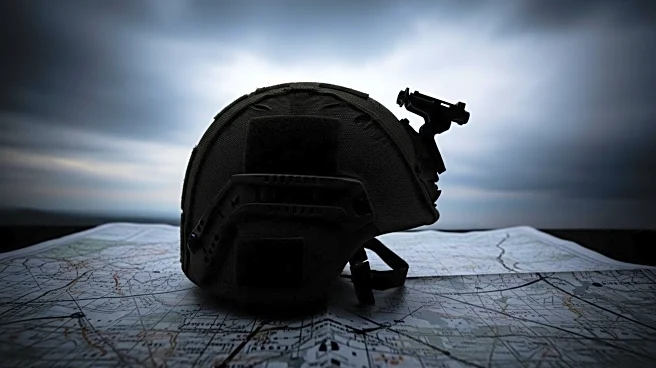What's Happening?
Russian forces attempting to advance on the town of Kupiansk in Ukraine's Kharkiv Oblast are being led by a former Ukrainian officer, Serhii Storozhenko, according to BBC News Ukraine. Storozhenko, who defected to Russia after the occupation of Crimea in 2014, now commands Russia's 6th Combined Arms Army. The situation in Kupiansk remains tense as Russian forces mass around neighboring villages, attempting to infiltrate Ukrainian lines using various tactics. Storozhenko's leadership in the offensive highlights the complex dynamics of the ongoing conflict.
Why It's Important?
The involvement of a former Ukrainian officer in leading Russian forces underscores the challenges faced by Ukraine in the conflict. Storozhenko's defection and subsequent rise in the Russian military illustrate the impact of the 2014 Crimea occupation on individual military careers and the broader geopolitical landscape. This development may affect Ukrainian military strategy and morale, as well as international perceptions of the conflict. The situation in Kupiansk is critical for both sides, with potential implications for regional stability and security.
What's Next?
The ongoing offensive in Kupiansk may lead to further military engagements and strategic maneuvers by both Russian and Ukrainian forces. Ukraine may seek to bolster its defenses and counter Russian advances, while Russia may continue to leverage defectors and other tactics to gain ground. International stakeholders, including NATO and neighboring countries, may monitor the situation closely, potentially influencing diplomatic and military responses.
Beyond the Headlines
Storozhenko's role in the conflict raises questions about loyalty and identity in wartime, particularly for individuals with ties to both sides. The use of defectors in military operations highlights the ethical and psychological dimensions of warfare, as well as the long-term impact of geopolitical shifts on personal and national identities. These factors may influence future discussions on conflict resolution and reconciliation.









